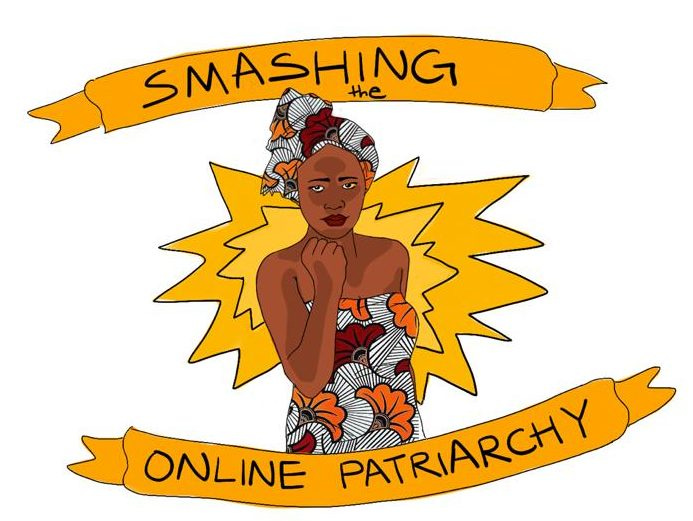Neema Iyer is an artist and a technologist. She is the founder of Pollicy, is the co-host of the Terms and Conditions podcast, a Practitioner Fellow at Stanford’s Digital Civil Society Lab and is on Facebook/Meta’s Global Women’s Safety Advisory Board. In this edition of Hello I Am, she discusses the origin story of Pollicy.
I originally started Pollicy to build data skills. There was a big gap in how data was being used, especially in the African context, in terms of evidence based decision making. And I felt like we were not where we needed to be in terms of how we conceptualized, collected, processed and disseminated data.
I’ve had so many ideas, prior to this, that I started as side hustles. And they all failed. So I decided to commit to something a hundred percent. That way, even if it doesn’t work out, I’ll know I gave it all I had. I quit my job then, and started working on Pollicy from the boys quarters at the back of my house. I started with nothing, but I had a very supportive network of family, and friends.
During the first year, I struggled a bit with finding direction. I knew I wanted to build data skills, but couldn’t figure out how to go about it. The first thing I did though, because nobody knew who I was, was to start working on independent projects. I worked on these projects, and put out lots of blog articles and content about data in Africa, as a way of building credibility.
Later that year, I went to an event in South Africa that changed the direction of Pollicy. It got me thinking about digital rights and digital safety, and the role of data in that realm. Then in 2019, I had the opportunity to join the Feminist Internet Research Network. The network changed my path of thinking about tech to be more feminist leaning. So, we made quite a big pivot into thinking about the intersection of feminism and tech, and data and the future. And that is the pathway that we've been on since then. Now, we’re thinking more holistically about what data means for us, what it can do for us, how to take back ownership of our data, and what it means to think about the future of data and the lives of Africans and people in the Global South in a way where we are writing our own destiny.
A big part of Pollicy is creating a feminist collective of technologists, data scientists, creatives and academics. Creating this space is still a work in progress. In some ways, I had always been feminist and always had strong views about what it means to be a woman. But then I went to this meeting with APC and I learnt all these different words - like intersectionality and positionality - that I'd never considered or thought about before. It became important for me to be more explicit in identifying who we are and what we’re trying to do. That way, we can attract people who have similar mindsets and are interested in this kind of work. I think we’ve done a good job of that, so far. With the kind of people we have now, we can conduct interesting conversations internally about our beliefs in terms of the types of clients and partners that we have, and whether we are being feminist in how we run the organization.

I think the biggest challenges I faced with Pollicy were related to admin - recruiting the right kind of talent, and hiring the right kind of talent. For example, I think there was a period where we went through four finance officers in a year. When you start an organization, you have all these visions of the things you want to do. But the finance of an organization is such a big part of the organization and it's extremely boring, annoying work. I'm not a finance person, but I had to learn. It’s interesting because when you want to run a credible organization and you want to get bigger volumes of money, you have to prove that you can handle those volumes of money. So finance and admin support is necessary. I think that would be a great business to start - supporting new organizations in setting up their finance systems.
It’s also quite challenging getting talent when you are just starting out, because you don’t have a ton of money. In my case, I hired junior people and they did their best, but there’s only so much they can do. So it all just fell on my shoulders. And that really takes you away from doing the important kind of work - thinking and strategizing. I’ve really enjoyed the work that we have done but, the truth is, the nitty gritty of running an organization can be quite tasking.
Pollicy is going to be turning five on March 1st, and my favorite thing about it is the kind of research we do. I find it super interesting because we’re just driven by curiosity. Anyone on our team can pitch an idea, and do the research. There’s so much we want to research, so many questions to ask about our community. I think, as a society, we do a very poor job of being speculative about the future. For example, in 2018 when Tiktok came out, people were very skeptical and making snide remarks about its resemblance to Vine. It’s 2022 now, and everyone’s on Tiktok.
We need to regularly ask ourselves, what could the future look like? I think, even after five years, we still struggle with collecting the basic data, having the right conversations about it and thinking about our future in terms of data. So I hope that, in some way, our research is helping to solve those problems and answering those questions because those are the really important questions that we should be asking ourselves.





“The nitty-gritty of running an organization can be quite tasking.” Yes!!! Thank you for this inspiring read.